I'm trying to read the data from .txt file into struct array and then writing some of this data into another .txt file using said array.
My code:
#define _CRT_SECURE_NO_WARNINGS
#include <stdio.h>
#include <string.h>
#include <ctype.h>
#define MAX 5 // max array size
//C:\\Users\\PATOX\\Desktop\\uczniowie.txt
struct para
{
char name[15];
int grade;
};
int read(FILE* file, struct para tab[], int m, int *k) {
FILE* output;
char path[80];
printf("Enter input file path: ");
scanf_s("%s", path, 80);
file = fopen(path, "r");
if (file == NULL)
{
printf("\nError opening input file\n");
return 1;
}
else
{
char path[80];
printf("Enter output file path: ");
scanf_s("%s", path, 80);
output = fopen(path, "w");
if (output == NULL)
{
printf("\nError opening output file\n");
return 1;
}
for (int i = 0; i < m; i++)
{
if (!feof(file))
{
int index;
char name[15];
int grade;
fscanf(file, "%d %s %d", &index, name, &grade);
strcpy(tab[i].name, name);
tab[i].grade = grade;
fwrite(&(tab[i]), sizeof(struct para), 1, output);
(*k)++;
}
}
}
fclose(file);
fclose(output);
return 0;
}
void print_array(struct para tab[], int m) {
for (int i = 0; i < m; i++)
{
printf("%s %d\n", tab[i].name, tab[i].grade);
}
}
int main() {
int k = 0; //data counter
FILE* file;
struct para tab[5];
read(&file, tab, MAX, &k);
print_array(tab, k);
return 0;
}
When I check the output .txt file the data is here, however only .name is written as expected, the second item is written as some artifact:
Expected (output.txt)
Drozd 4 Jas 5 Tom 6 Bas 8
Actual (output.txt) (output.txt)
Drozd ÌÌÌÌÌÌÌÌÌÌ Jas ÌÌÌÌÌÌÌÌÌÌÌÌ Tom ÌÌÌÌÌÌÌÌÌÌÌÌ Bas ÌÌÌÌÌÌÌÌÌÌÌÌ
